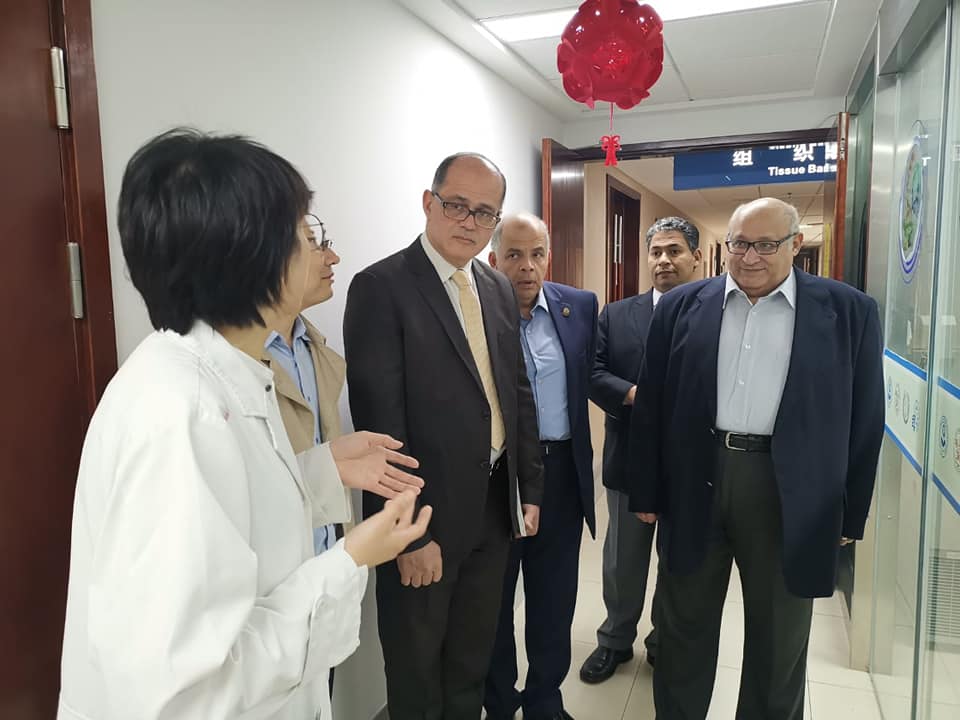
High-level delegation from Ain Shams University visited cancer hospital at Fudan University
Prof. Dr. Abdul Wahab Ezzat, President of the University visited the cancer hospital of the University of Fudan China, accompanied by Prof. Dr. Ashraf Omar, Vice Dean of the Faculty of Medicine for Education and Students Affairs, Prof. Dr. Ayman Saleh, Director of University Hospitals, Prof. Dr. Esraa Abdel-Sayed, Director of the Office of International Relations and Dr. Sherif Kutb Director of the Center for Innovation and Enterprise Development Support at Ain Shams University.
The senior Egyptian delegation was received by the Dean of the Cancer Hospital of Fudan University of China and Dr. Chen Chao, the largest oncology surgeon in the People's Republic of China, heads of the liver, breast, colon and esophageal surgery departments, director of international cooperation and director of biobank of the hospital.
The visit comes as an extension of the twinning agreement signed by the two sides in April 2018, during which doctors of Ain Shams University for training at the Fudan University Cancer Hospital, as well as the participation of several Chinese delegations to international conferences of Ain Shams University sent a number of scientific missions.
The visit included a tour of the Egyptian delegation in various oncology departments, operating rooms, patients' rooms, nursing staff, and radiation labs and analyzes, as well as a laboratory for the preparation of chemotherapy and biobank.
The two sides discussed the final arrangements for the sending of visiting professors for training in a number of joint research projects, which were launched in December last year, in order to begin the preparation and processing of the first nucleus for the establishment of Biobank in Ain Shams University.
The Fudan University Cancer Hospital has 1,200 beds of tumors and serves 3 million patients a year with nearly 3,000 pathological samples per day.
.svg)
